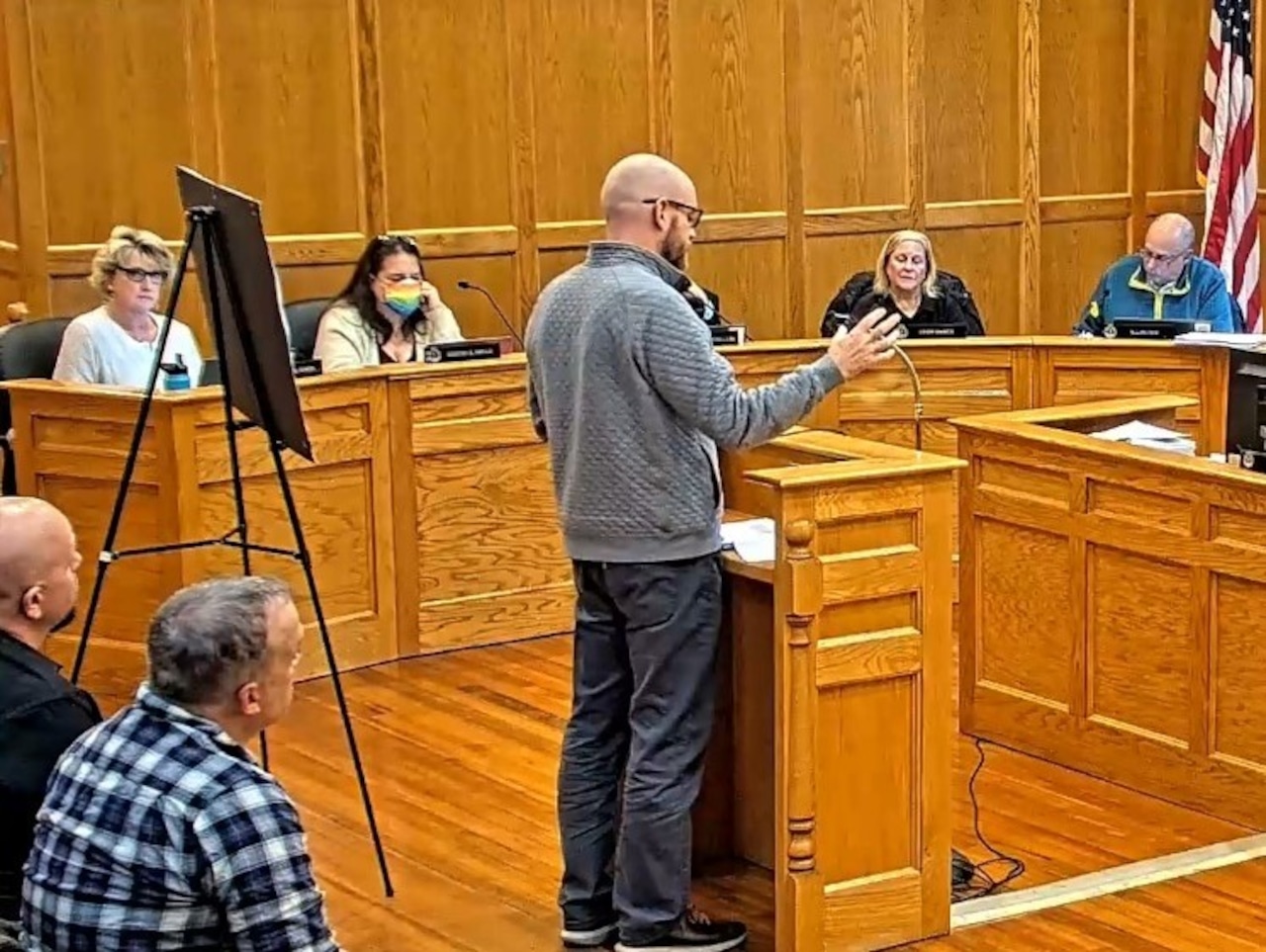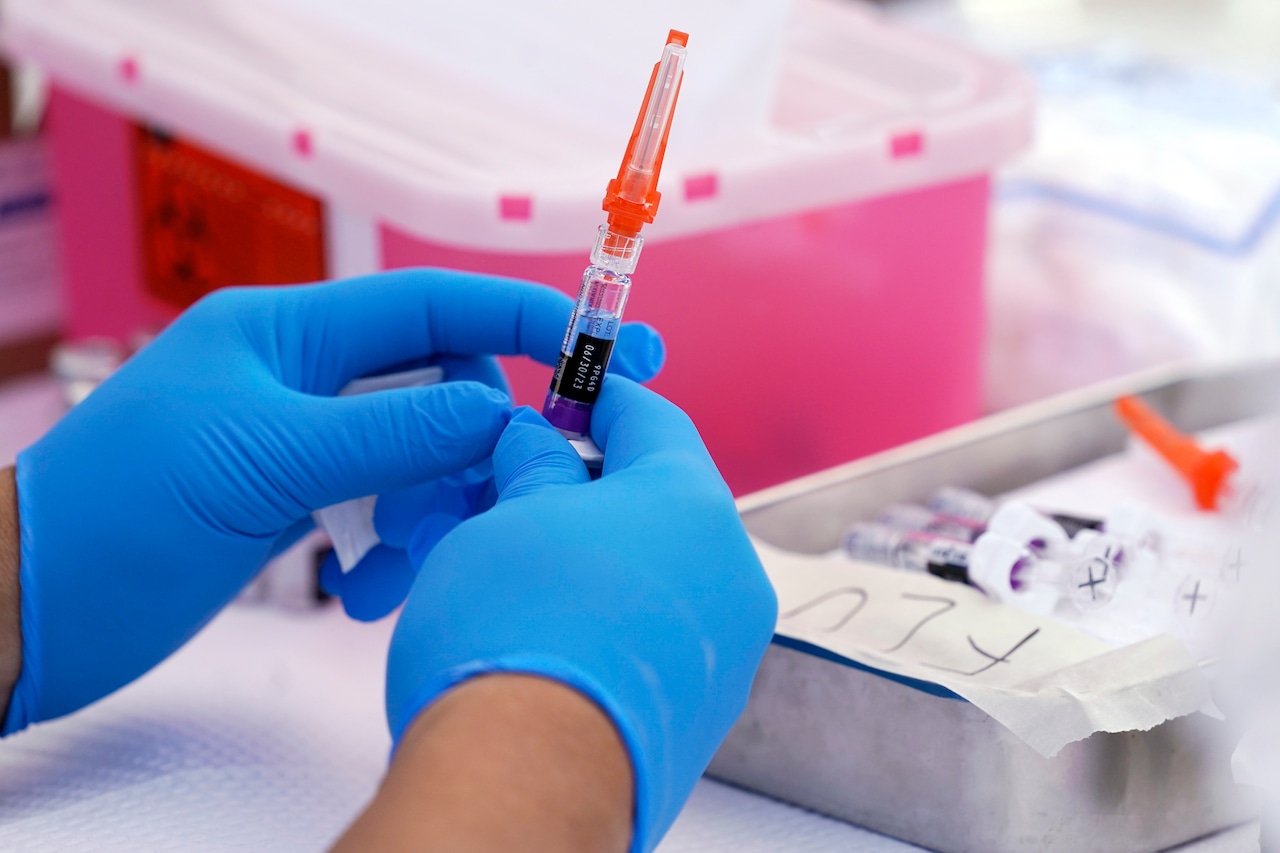Dozens of cannabis entrepreneurs were buoyed last month by the announcement of more than $2 million in grant funding from a unique state program for business owners from communities most affected by strict drug prohibition.
Millions more may soon follow.
The grants represented the first money released from the state’s Cannabis Social Equity Trust Fund, which channels money from marijuana sales taxes back to businesses to offset the lingering effects of the so-called War on Drugs.
The fund now holds more than $27 million, according to Juan Vega, assistant secretary for communities and programs in the Executive Office of Housing and Economic Development.
The money is available to members of the state’s cannabis social equity program, which provides training and resources to people from communities historically subject to high drug enforcement and people convicted of certain drug offenses.
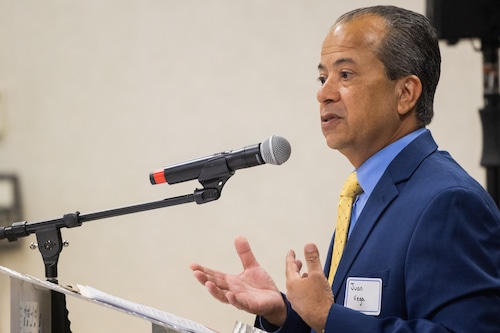
Executive Office of Housing and Economic Development’s assistant secretary for communities and programs Juan R. Vega speaks at the Community Empowerment and Reinvestment Grant press conference in downtown Springfield Tuesday afternoon, Aug. 22, 2023. (Hoang ‘Leon ‘Nguyen / The Republican)
The cannabis industry is known for its steep start-up costs, Vega noted in an interview with MassLive. This money, he said, is “being made available to a population that, generally speaking, does not have deep pockets, does not have the access to capital.”
The first round of grants — $2.3 million divided between 50 companies — provided an emergency burst of funding for applicants in difficult financial circumstances, some struggling to cover rent or payroll.
Vega said a second grant program, expected to launch this summer, will provide larger grants to help social equity program participants launch or expand their businesses.
“It’s really about helping these companies focus on growth rather than worrying about a bill,” he said.
According to the state’s Cannabis Control Commission, Massachusetts was the first state “to mandate full participation in the legal cannabis industry by communities that have been disproportionately harmed by marijuana prohibition and enforcement.”
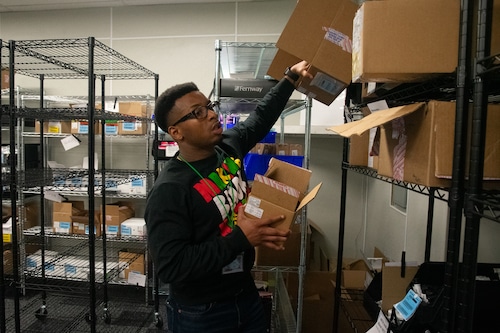
Chris Fevry is pictured at Natick headquarters of Dris, a cannabis delivery service he runs with his wife and business partner Dharry Pauyo. They were among the initial recipients of a grant from the Cannabis Social Equity Trust Fund.Will Katcher/MassLive
The Social Equity Trust Fund was also a first of its kind. Vega’s office oversees about 10 grant programs, he said. This was the first to direct money to for-profit businesses, rather than nonprofits or municipal programs.
The rollout took longer than some businesses had hoped.
The fund, created in 2022, is filled using 15% of the money collected through marijuana sales taxes. But it remained empty for more than a year due to a technical glitch in state law.
State lawmakers corrected the issue last year.
Vega said his office then moved swiftly to review grant proposals and allocate the money.
Meaka Brown, a member of the board advising Vega’s office on the fund’s administration, said she was “pretty satisfied with how this rollout went.”
“The goal and objective was to get some quick cash into people’s hands and I’m hoping it can tide them over,” Brown said.
As officials turned to the next round of funding, Brown said she wanted to see more data on the businesses using the grants — including how many were owned by women or veterans, for example — and wanted to see the money distributed efficiently.
“Let’s get to business,” she said. “How are we allocating that money this year? How are we getting that money to the people who need it?”
Gov. Maura Healey said last month that the funds will help create “a sustainable and inclusive path” into the cannabis industry for business owners who might have otherwise struggled to succeed.
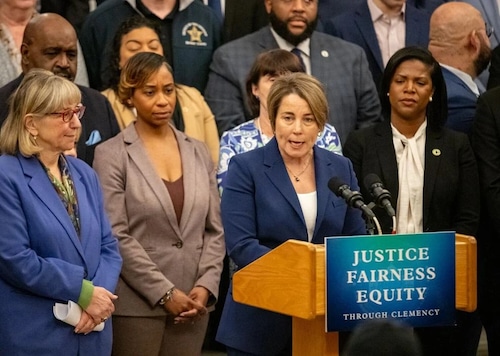
Gov. Maura Healey announces details of her proposed blanket pardon for simple cannabis, joined by, from left, Senate President Karen Spilka, Attorney General Andrea Campbell, and Cannabis Control Commission acting Chair Ava Callender Concepcion. (SAM DRYSDALE / STATE HOUSE NEWS SERVICE)State House News Service
“Marijuana prohibition and enforcement has historically disadvantaged those living in communities of color,” Lt. Gov. Kim Driscoll also said last month. “With the Cannabis Social Equity Trust Fund, we are rewriting this narrative and providing a secure path for aspiring social equity cannabis entrepreneurs to succeed.”
The initial grant announcement came two weeks after the Governor’s Council approved Healey’s blanket proposal to pardon anyone convicted of simple cannabis possession in Massachusetts.
Exact estimates varied for how many people the pardons would help. The governor’s office claimed it would be “hundreds of thousands,” though other estimates placed the number in the tens of thousands.



